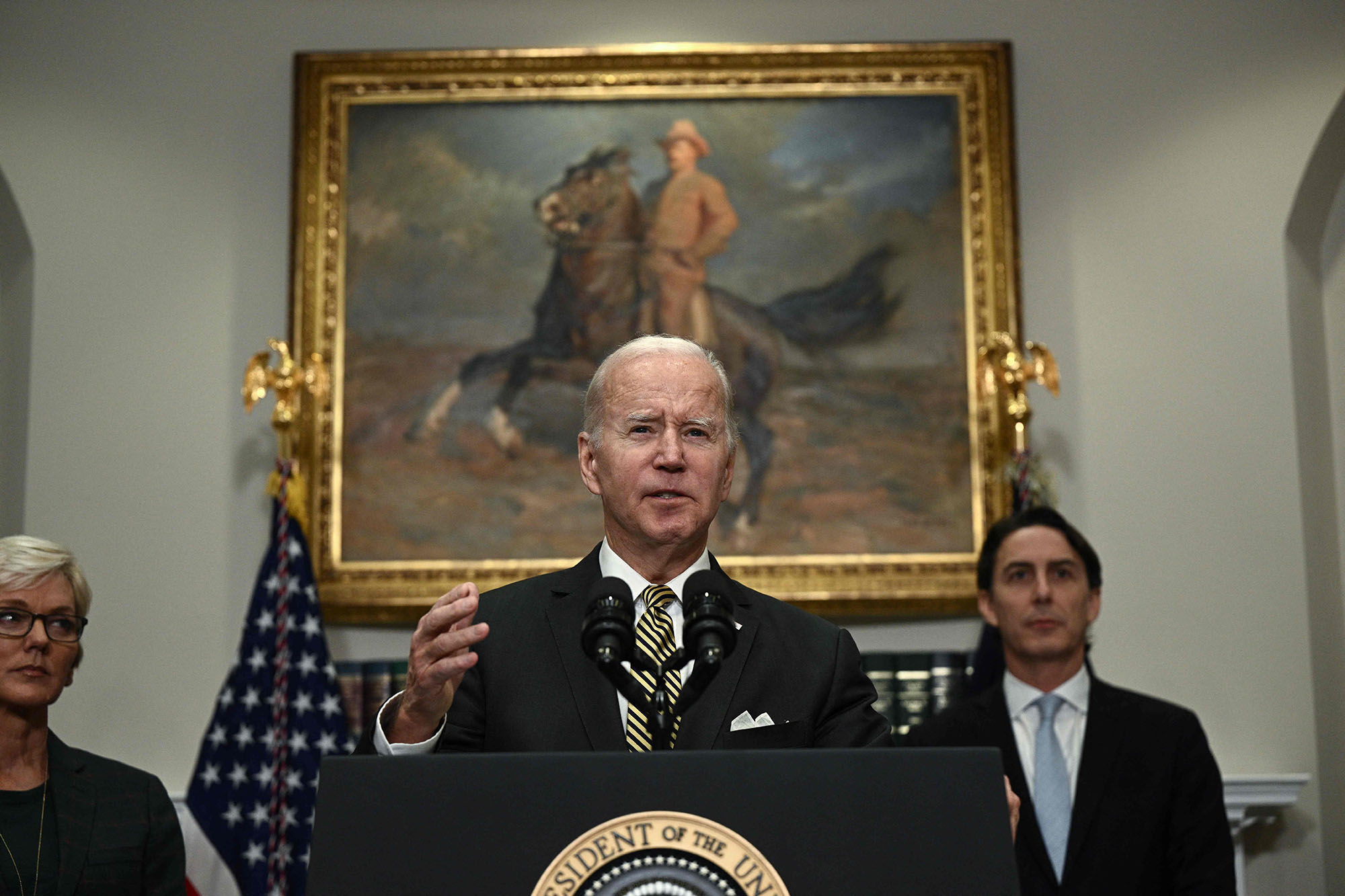Biden announces more steps to try to lower gas prices, including next oil release from reserve
Biden confirmed the release of 15 million barrels from the nation’s stockpile.
President Joe Biden on Wednesday announced a series of steps aimed at easing the oil supply crunch and lower gas prices, which have become a major domestic concern ahead of the November midterms.
Biden confirmed the release of 15 million barrels from the nation's stockpile -- known as the Strategic Petroleum Reserve -- in December.
"With my announcement today we're going to continue to stabilize markets and decrease the prices at a time when the actions of other countries have caused so much volatility," Biden said from the Roosevelt Room.
This isn't a new tranche, administration officials told reporters earlier, but rather the final 15 million barrels from the 180 million that Biden pledged this spring to release over six months.
Biden on Wednesday also said the administration is taking the unusual step of planning to buy oil to rebuild the strategic reserve once crude falls below $70 per barrel. Officials said that step is meant to send a clear signal to the market and incentivize domestic oil production.
To that end, Biden also went after oil companies on Wednesday -- accusing them, as he has in the past, of price gouging at a time of historic profits.
"You should not be using your profits to buy back stocks or for dividends," Biden said in remarks directed to energy companies. "Not now, not while a war is waging. You should be using these record-breaking profits to increase production and refining. Invest in America for the American people. Bring down the price you charge at the pump to reflect what you pay for the product."
Oil executives previously testified before Congress to address concerns about their prices but have insisted it is the result of larger economic forces, including supply and demand. The oil companies and some energy analysts have also repeatedly pushed back on Biden's calls to ramp up production, saying that increasing production is not so simple or easy and that other factors are at play.

Gas prices have started to drop in the last week, but the national average for a gallon of gas is 20 cents higher than one month ago, according to AAA -- with gas prices also 56 cents higher than one year ago, though down from their summer high of more than $5 per gallon.
"But they're not falling fast enough," Biden acknowledged Wednesday. "Families are hurting."
The Biden administration claimed some success in lowering prices over the summer and continued to blame Russian President Vladimir Putin's invasion of Ukraine and "other actors in the market" for the rising prices this fall.
The cost of gas, paired with overall high inflation, have led to months of withering criticism by Republicans as polls show voters are sour on Biden's handling of economic issues.
Though the midterm elections loom, and while the 15 million more barrels of oil won't be released until December, administration officials said Biden is making an announcement now because of standard Department of Energy policy that requires a notification of the release a month and a half in advance.
Biden denied the action was politically motivated -- to help Democrats before the midterm elections -- when questioned by a reporter Wednesday.
"It's motivated to make sure that I continue to push on what I've been pushing on and that is making sure there's enough oil that's been pumped by the companies, so that we have the ability to be able to produce enough gas that we need here at home," Biden responded.
Other actions to address oil supply, according to officials, potentially include some limits on oil companies' exports to other markets. The administration has also not ruled out additional releases from the U.S. reserve, the officials said, with a decision on a January release to be made in November.
"We're keeping all tools on the table, anything that could potentially help ensure stable domestic supply," one official told reporters.




